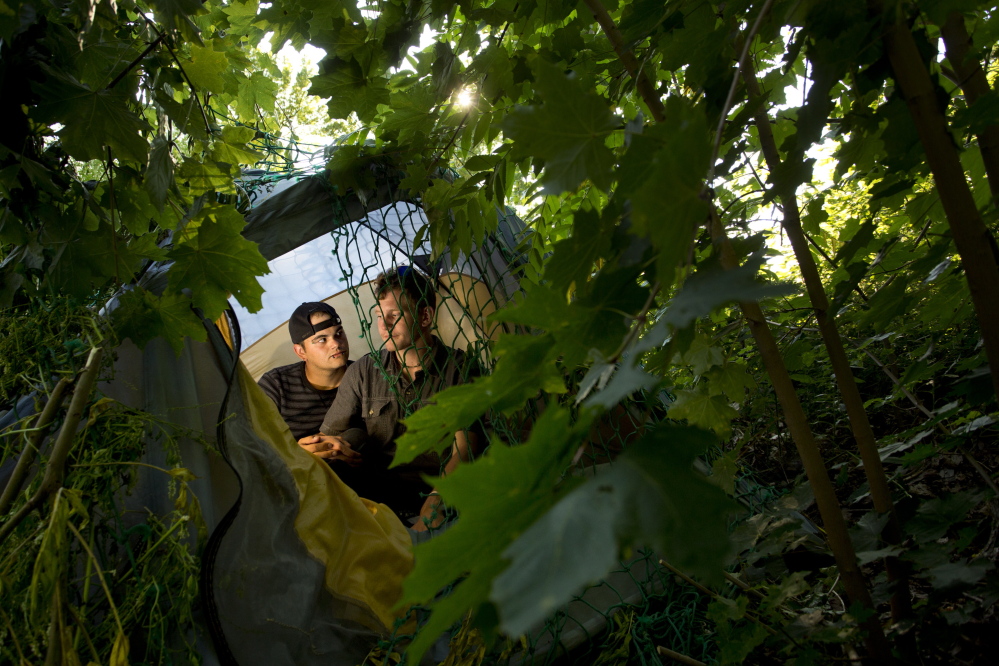Sleeping in a tent can be a pleasant way to enjoy the outdoors for a few nights during the summer. An increasing number of homeless people, though, are sleeping outside for weeks or months on end for lack of options other than shelters.
It’s another sign of how a weakened social safety net is unable to address people’s basic needs — and of how each reduction in services is putting needy Mainers even further behind.
What leads some homeless people to prefer camps to shelters are the same things that drive anyone seeking a place to live. They want a secure space of their own where they can stay with their spouse or partner — not a mat in a noisy room full of people who can be delusional or violent, where residents hold on to their belongings as they sleep to keep them from being stolen.
But those living outside also are vulnerable. Flames used for light or heat have caused injury and death in Portland homeless encampments.
Even the most secluded spot isn’t out of the reach of vandals who ransack and raze campsites: Terry Walters, who lives with her husband in a wooded area near the Maine Turnpike in Portland, told the Press Herald that they deal with this risk by hiding their tent under a brown tarp and tree branches. She scavenges for food at a dumpster near her campsite and panhandles for cash.
And residents of encampments face other struggles besides the already formidable challenge of lacking a roof over their heads. Mickey Kline, who lives with his partner in a tent off Valley Street in Portland, works full time but hasn’t been able to save money because of a debt to a storage facility.
The sources of help to people like Kline and Walters are drying up. In 2014, the Maine Department of Health and Human Services cut off food stamp benefits to “able-bodied,” childless Maine adults.
Thousands of Mainers have lost access to medical care, including mental health and substance abuse services, because of Medicaid cuts. The DHHS has even eliminated unlimited monthly bus passes for Medicaid recipients, leaving many poor and homeless people without reliable transportation.
Without government cooperation, this is a gap that’s tough to fill, despite the best efforts of social service agencies like Milestone, whose outreach team offers homeless campers water and sunscreen and checks on their health, and Preble Street, which is giving out 50 percent more food boxes a week now than it did in 2007.
As the days grow shorter and temperatures drop, Walters says she and her spouse might stay in the woods rather than return to the Oxford Street Shelter, while Kline and his partner hope to get an apartment by securing a Section 8 housing voucher.
“We want to live our lives like normal people,” said Kline.
It’s a modest aspiration, but one that is getting further and further out of reach for the region’s poor.
Send questions/comments to the editors.



Success. Please wait for the page to reload. If the page does not reload within 5 seconds, please refresh the page.
Enter your email and password to access comments.
Hi, to comment on stories you must . This profile is in addition to your subscription and website login.
Already have a commenting profile? .
Invalid username/password.
Please check your email to confirm and complete your registration.
Only subscribers are eligible to post comments. Please subscribe or login first for digital access. Here’s why.
Use the form below to reset your password. When you've submitted your account email, we will send an email with a reset code.